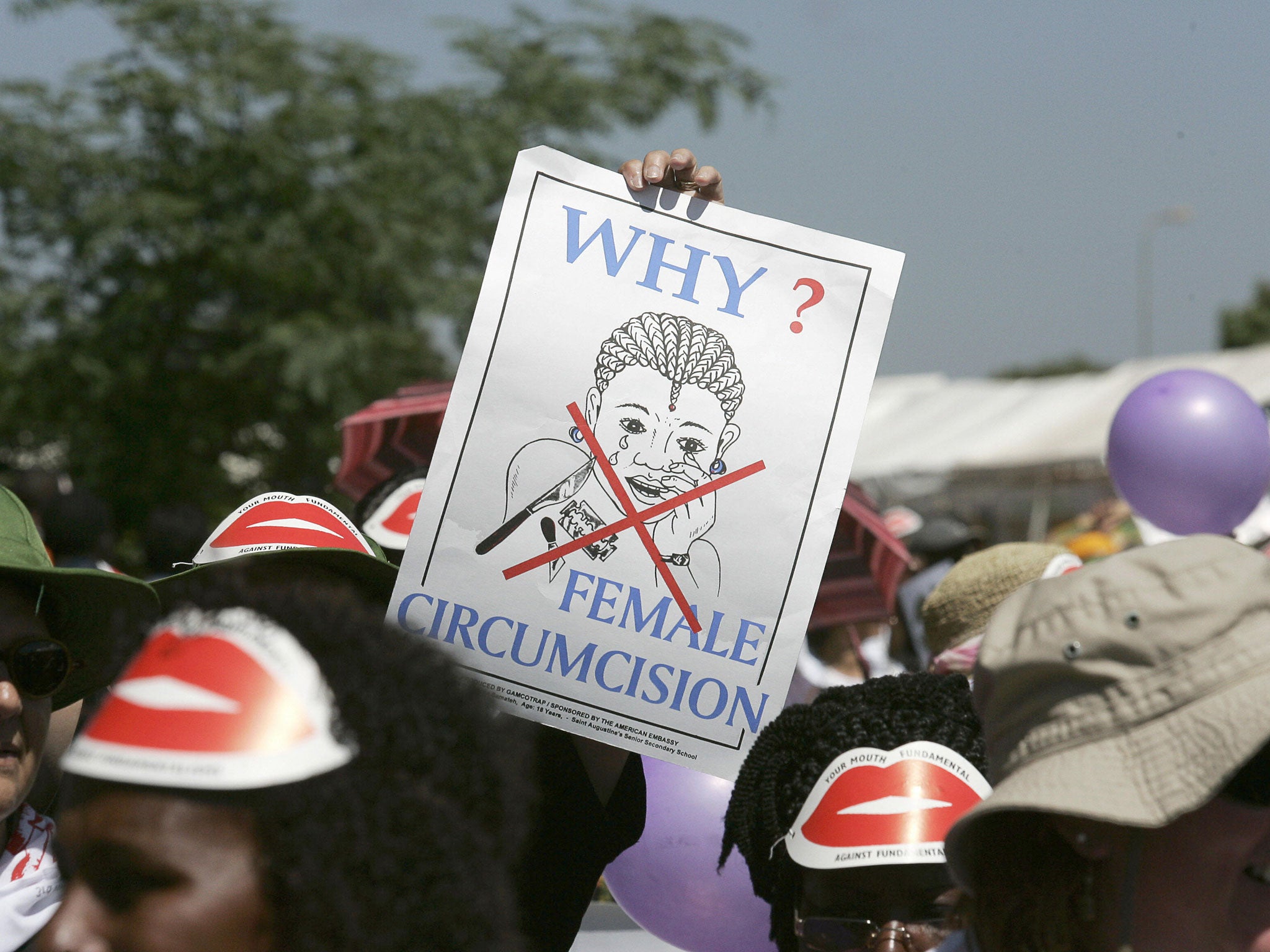FGM: More than a thousand women and girls suffered genital mutilation in a space of four months, say NHS
The maximum jail term for carrying out or enabling FGM is 14 years but no successful prosecutions have ever taken place

More than a thousand women and girls were discovered to have suffered genital mutilation in just four months this year, NHS figures show. These included nine victims under the age of 18.
Records from hospitals, GP surgeries and mental health centres show there were 1,036 newly-recorded cases of female genital mutilation (FGM) in England between April and June this year. This is the first quarter that the NHS has recorded FGM rates in the country.
Women and girls were most likely to self-report that they had suffered FGM, according to the data, which was gathered by the Health and Social Care Information Centre (HSCIC). Statistics were gathered both for woman or girls having treatment directly related to FGM, or where it was identified by the care provider or the patient herself.
FGM has been illegal in the UK since 1985. For the last 12 years it has also been illegal to take a woman abroad for the purposes of FGM. The maximum jail term for carrying out or enabling FGM is 14 years but no successful prosecutions have ever taken place.
Tanya Barron, chief executive of the charity Plan UK, which works to combat FGM worldwide, said: “It's shocking to see the extent of FGM here in the UK. We've seen hugely increased attention on this problem in the past few years and we are now waking up to the scale of this terrible practice.”
In February, an NHS doctor was cleared of performing FGM on a young mother. Dhanuson Dharmasena, 32, was accused of carrying it out when stitching the woman after she gave birth at London’s Whittington Hospital in 2012. A second man, Hasan Mohamed, 41, was also cleared of aiding and abetting him. The trial marked the first prosecution of its kind in the UK.
A Department of Health spokesman said: “FGM devastates lives, and we are committed to ending this abusive practice. The first step is to identify the scale of problem. That is why we have expanded the data that we are collecting on FGM across the NHS, as we seek to end FGM in a generation.”
Join our commenting forum
Join thought-provoking conversations, follow other Independent readers and see their replies
Comments